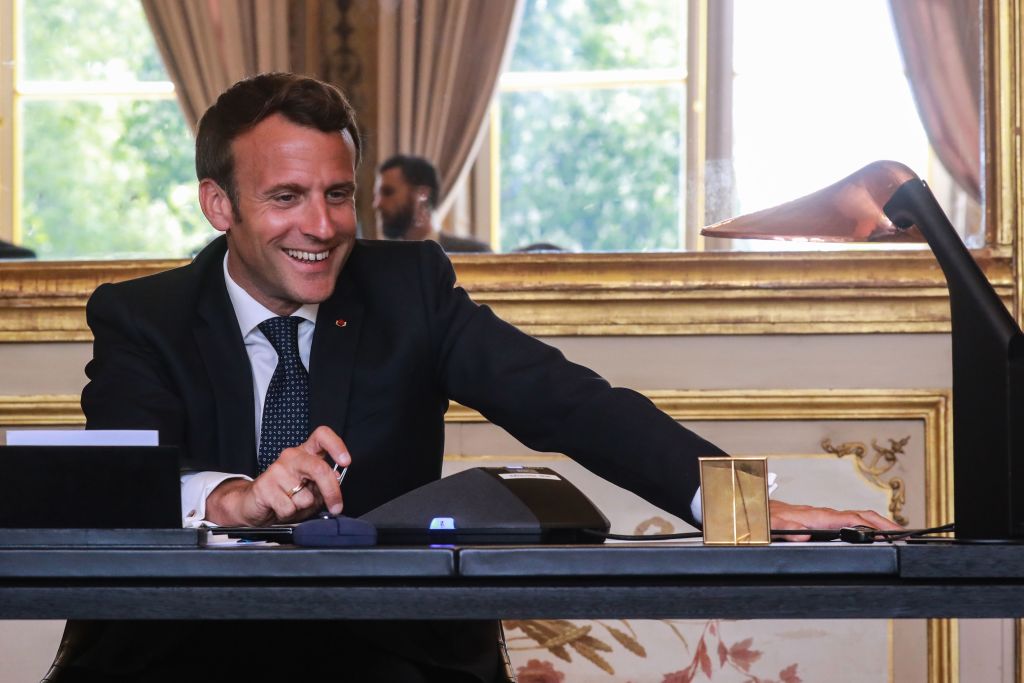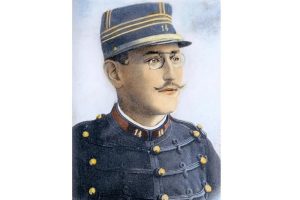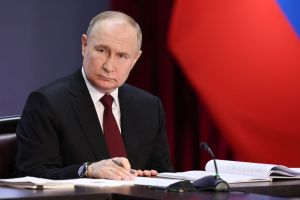Today marks the third month of my confinement in my fifth floor apartment in Paris. As I wrote all those weeks ago, shortly after President Macron declared his ‘war’ on coronavirus, I had adopted a prisoner psychology to see me through what I suspected from the outset would be six weeks minimum of lockdown.
I wasn’t wrong. I’m due for release on Monday May 11, but I can’t say I’m counting down every second with a sense of impatience. Not that I want to stay locked up but I’m not sure life will change that much in the short term once I’ve regained my liberty: no bars or restaurants to visit, no cinemas or theaters open, no sport to watch and no traveling beyond a 100km (62-mile) radius. It’s not going to be a summer of fun. Still, it will be gratifying to go out without first completing a permission form. Not that’s it’s been that bad, certainly not the police state that some foreign commentators have claimed.
A couple of weeks ago John Humphrys asserted in the Daily Mail that heavy-handed French police were rifling through people’s shopping baskets to check they had bought only essential items. I don’t know from where Mr Humphrys got his information but I have neither heard nor read of such incidents. In fact it’s weeks since I last saw the police on the Paris streets. It was Easter Friday, if my memory serves me correctly, and I passed four on a foot patrol as I walked home from the supermarket. I smiled and wished them a good day, and they returned the greeting. Not once have I been stopped by a police officer and asked for my permission form and my ID, and nor have the three friends I canvassed in writing this article.
I suspect that the majority of the police in France — with the exception of those in the half a dozen hotspots in the banlieues — have been having a well-earned rest. They deserve it, after years of strife from strikers, Islamists and gilets jaunes.
The police in France normally spend May Day battling anarchists and far-left extremists as they embark on their traditional carnival of carnage across Paris. Last year, hundreds went on the rampage, injuring 14 police officers, and in 2018 masked protestors fire-bombed a McDonalds and torched dozens of cars; every cloud has a silver lining and in the case of coronavirus, it’s that France will be spared the annual May 1 anarchy. Instead an online demonstration has been organized with unions calling on its members to ‘invade social media and publicize our rally for a future that is ecological, social, feminist and democratic!’
It is puzzling, nonetheless, that the anarchists of France have been so acquiescent of the lockdown. I assumed such a draconian lockdown would be an affront to any self-respecting anarchist. Their docility fuels my long-held suspicion that most anarchists in France are middle-class students; perhaps their absence from the streets is because they’re spending the lockdown at their parents’ holiday house by the sea.
Another post-confinement measure announced by the government is the compulsory wearing of masks on all public transport and in taxis. They will be also be obligatory when schools start re-opening from May 11.
It’s been interesting to observe the steady proliferation of masks in Paris.
When the confinement began, few Parisians bothered but now I would estimate that 50 percent of people I pass on the streets wear one. On the window of my local creperie is an advert for handcrafted masks in a variety of patterns, and judging by the colors I see on the streets such ingenuity is reaping its reward.
I don’t wear a mask but then I’ve noticed that few men of my age do except the key workers. From my observations masks are most popular with middle-class women aged between about 30 and 60. They’re also the ones most likely to hug the edge of the pavement as I pass, although as my daughter remarked recently that may have less to do with the fact that I’m not wearing a mask and more to do with my broken nose and cauliflower ear.
All in all, I reckon I’ve had a good ‘war’, as have in general the French, a point made last week by Christophe Castaner, the interior minister, who praised the country’s discipline.
I can’t help thinking, however, that President Macron’s problems will really start post-confinement. France has plunged into recession as its GDP contracted by 5.8 percent in the first three months of 2020, the worst contraction since the second war. With such a grim outlook it’s probably just as well the police have had their feet up these past seven weeks because also making the most of the unseasonably good weather have been the anarchists, extremists, unionists, opportunists and gilets jaunes. As they’ve recharged their batteries so their list of grievances has been growing under the spring sunshine and the hard-left Union, CGT, is already threatening post-lockdown strike action warning they ‘won’t pay for a crisis generated by the political choices of a lethal capitalist system’.
Bonne chance, Monsieur le president, you have won your ‘war’ but the peace may be harder to master.
This article was originally published onThe Spectator’s UK website.


















